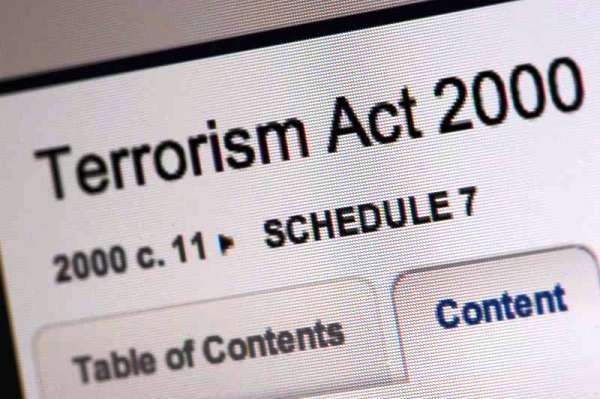 The examination and detention of David Miranda on 18 August at Heathrow Airport has brought Schedule 7 of the Terrorism Act 2000 in to sharp focus. Its purpose is to deter terrorism, an aim that it strives to achieve through facilitating the stop, search and examination (under compulsion) of individuals. I say individuals rather than suspects as there does not need to be any reasonable suspicion that any terrorist offence has been or will be committed. That said the selection of individuals is to be based on “informed considerations” (such as intelligence), should not be used arbritrarily and must only be applied to determine those who may be concerned in acts of terrorism. The power only applies to those believed to be entering or departing the United Kingdom and this belief must be justifiable in the individual circumstances.
The examination and detention of David Miranda on 18 August at Heathrow Airport has brought Schedule 7 of the Terrorism Act 2000 in to sharp focus. Its purpose is to deter terrorism, an aim that it strives to achieve through facilitating the stop, search and examination (under compulsion) of individuals. I say individuals rather than suspects as there does not need to be any reasonable suspicion that any terrorist offence has been or will be committed. That said the selection of individuals is to be based on “informed considerations” (such as intelligence), should not be used arbritrarily and must only be applied to determine those who may be concerned in acts of terrorism. The power only applies to those believed to be entering or departing the United Kingdom and this belief must be justifiable in the individual circumstances.
Be in no doubt that, whatever the expressed safeguards as to informed selection and justifiable beliefs, Schedule 7 is draconian. It was meant to be. It was aimed at preventing terrorism through exceptional legislative means. It exceptionally permits individuals to be stopped, questioned under threat of prosecution if they refuse to answer and their possessions seized (under threat of prosecution) should they fail to comply. It turns the accepted approach to criminal suspects on its head; the need to demonstrate a prior reasonable suspicion of offending is removed and the protection of silence is pierced by a compulsion to answer all questions. It is a blunt but arguably necessary tool in the fight against terror. The danger is that it becomes a blunt tool to batter down doors unconnected with terrorism. It cannot and should not be applied as a means to achieve any other objective.
In order to obtain confidential or sensitive information such as journalistic content the police must ordinarily undergo a route that involves obtaining a production order. To obtain such an order they must essentially satisfy a court that the order is justified and the protection afforded to the material can be overcome. Evidently Schedule 7 was never meant to take aim at journalism but, given the powers of compelled answers and seizure of material, one can instantly appreciate the fast lane route it would provide to obtaining information for extraneous intelligence purposes. That would be an abuse of the Act, a likely breach of Article 10 (freedom of expression) and unlawful on a number of levels but how can we safeguard against it? “Quis custodiet ipsos custodies” [who will guard the Guardians] wrote Juvenal. Rather apt.
Dan Hyde is a partner at HowardKennedyFsi LLP
This article was originally published on 22 Aug, 2013 at indexoncensorship.org





